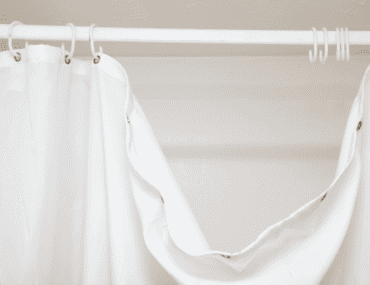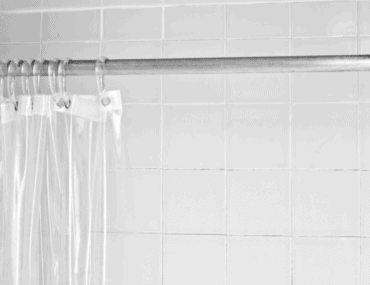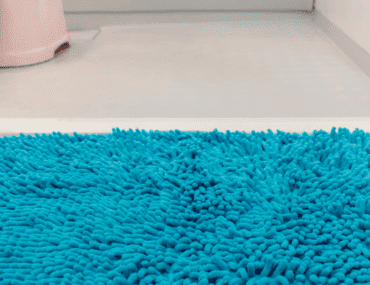It’s summer, it’s hot, and your baby is finally big enough to come into the pool with the rest of the family. This is a huge milestone, and a joyous occasion! But you might be a bit apprehensive at first, and with good reason. A pool setting can be dangerous for adults, so how much more so a small infant. But never fear! You just need to get a good advice on having a baby swimming steps.
Related: All About Baby Swimming: What’s The Ideal Time to Teach Swimming to Babies
There are ways to make sure that your little one stays safe, have a good time, and actually learns something. Here are 10 useful pieces of advice on how to introduce your baby to the pool and swimming.
Learn the Rules About Water Safety

Here is an advice on having a baby swim for the first time. Before trying anything in water, safety preparation is an absolute must. Make sure that you and your spouse are up to date on all water safety regulations. Arm yourself to the teeth with safety rules and precautions and emergency procedures. Having all about baby water safety knowledge and having a plan will naturally give you confidence and help you relax. If you are one of millions of people who can’t swim, sign up for lessons. There are many places that offer adult classes at an affordable price, and this will also help you feel more confident about looking at your baby in the water.
Related: The Bath Time Routine that Works for Fallon Sullivan and Her 5 Year Old Daughter
Bond First

What is it that you want from this session with your baby? Do you want to bond with them? Do you want to get them acclimated to water so that they will be prepared for an upcoming pool party? Or do you simply want to introduce them early, so that swimming lessons can naturally follow? All of these are good reasons to introduce a baby to water. However, the overall goal is to create a secure atmosphere that your child will eventually want to explore. An advice on having a baby swim, this is their swim journey, so keep close in mind that their comfort comes first!
Create a Safe Space

Like with most new things, a baby needs to feel that they are in a comfortable and safe environment to learn. First and foremost make sure that the water is a warm, comfortable temperature. There’s nothing worse than feeling cold water prick you! Also, clear the water of any debris or obstacles that may have found their way into it. Try to introduce them to water in a quiet setting, without the noise of other kids playing or loud music. Also, keep an eye on the clock. Here is a little advice on having a baby swim, a baby shouldn’t be in water too long. It could cause baby health problems.
It’s All About Baby Safety and Having The Right Attitude

It’s all about attitude! After accepting advice on having a baby to swim in the pool, you must remember while introducing water parents have to first be calm and relaxed. The right attitude means a positive and confident one. Children have a remarkable way of picking up on other’s emotions, especially their parents, so if you want them to feel cool as a cucumber, then you have to be as cool as a cucumber. Sometimes that can be difficult because of excitement about the milestone, or even fear that something bad may happen. Take a deep breath before hand, think positively, and remember that this is about the baby, not you.
Have Nanny or Assistance

If you receive an advice on having baby nanny, then don’t just turn a deaf ear to it. There’s no shame in having some help on hand when teaching a baby about water and safeguard from baby health problems! Usually, it’s best that a baby’s first water introduction be a family affair; having both parents involved makes it fun and familiar to the baby. However, sometimes mom or dad can’t be there, or maybe just mom and dad isn’t enough! In that case, its ok to have someone trustworthy alongside you to help keep the situation calm, like a friend or a grandparent. Even though older children may be eager to help, it’s best to not let them participate until the baby gets comfortable.
Related: Top 10 Best Baby Care Games Bath Toy Organizers
Get The Right Tools

Using a baby swim aid such as a baby float or swim vest is not necessary, but it is a great option for the first time experience. If deciding to purchase a baby swim float, do extensive research. Make sure that it is secure, with a wide stable base and a low center of gravity. Check ratings and comments by other users, and ask other parents of older kids what they may have used for their first water introduction session and advice on having a baby safety. Above all else: make sure the float is properly inflated before use! This goes for vests as well, of course.
Let the Child Follow Their Own Pace: Don’t Rush!

The best thing to do when introducing a small child to water is GO SLOW. They need to adjust to this new world that is so different from the bathtub! When entering the water, hold the baby close and let them feel the water on their feet. Splash their legs a little with water, bob their feet in and out and sway their legs around to give them a taste of what it feels like. Then, when they seem to be ready, slowly immerse! Singing a song or making soothing sounds is also helpful if a child is particularly skittish.
Keep Worry Aside

If a child isn’t picking up how to float as quickly as some others, or maybe they aren’t taking to the water with the same joy as you did in the past, don’t worry. Again, every child is different so don’t follow every and any advice on having a baby swim so early, if your child is not ready. Perhaps they won’t be a water bug or a beach bunny; it’s ok, they’ll have other interests. It’s possible to teach them this skill without making it seem like swimming will be the crowning achievement of their lives. On the other hand, don’t be overly worried about their safety. A measure of freedom is needed for the child to properly learn.
“Sink or Swim” Lessons: Don’t Follow Them

Many people have experienced the “Sink or Swim” scenario in their childhood: being thrown or pushed into the water by a parent, sibling or older mentor figure, with the logic that the child would HAVE to learn to swim or die trying. Of course, the older person would never let the child die, but try telling that to the child and try on the advice on having a baby some company! This is not how to play with a month old baby or any baby at all. This method has resulted in much psychological harm, including trust issues and a downright phobia of water. It’s never worth it to harm a child in this way, no matter what grandma and grandpa thought was ok in the past.
Help Them To Love The Water

Babies learn far more from what their parents do than from what they say. Sitting on the edge of the pool while encouraging them to enjoy the water, or chastising them for being afraid or uncomfortable, can create a detached view of swimming, or worse, a phobia. Swimming lessons should be a family affair, full of fun and love. Swimming is an important skill, but it’s also a good chance to bond. Don’t miss out on that opportunity than following the advice on having a baby swim as infants or toddlers! The more good experiences they have in the water, the more they will come to love it. So don’t give up!
Next: Baby Care Games: 10 Toys We Can Use in Baths
The links are amazon associate links.





